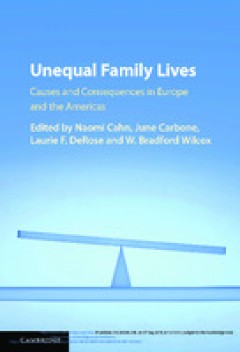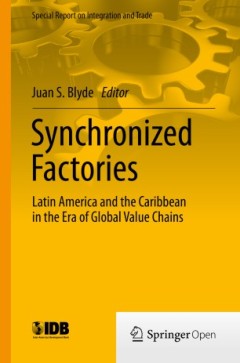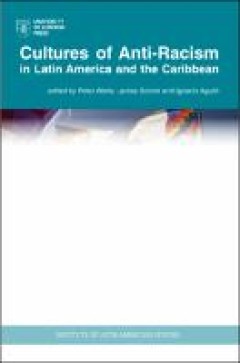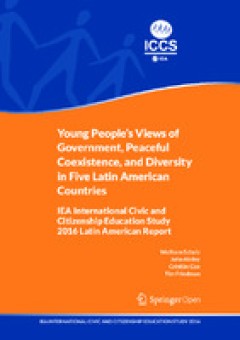Filter by

Unequal family lives : causes and consequences in Europe and the Americas
Across the Americas and Europe, the family has changed and marriage is in retreat. To answer the question of what's driving these changes and how they impact social and economic inequality, progressives have typically focused on the economic causes of changing family structures, whereas conservatives tend to stress cultural and policy roots. In this illuminating book, an international group of …
- Edition
- -
- ISBN/ISSN
- 9781108235525
- Collation
- xix, 327p. : ill.
- Series Title
- -
- Call Number
- 306.850973 UNE u

Unequal family lives: causes and consequences in Europe and the Americas
Across the Americas and Europe, the family has changed and marriage is in retreat. To answer the question of what's driving these changes and how they impact social and economic inequality, progressives have typically focused on the economic causes of changing family structures, whereas conservatives tend to stress cultural and policy roots. In this illuminating book, an international group of …
- Edition
- -
- ISBN/ISSN
- 9781108415958
- Collation
- xix, 327 pages : illustrations, maps ; 24 cm
- Series Title
- -
- Call Number
- 306.850973 CAH u

Enabling openness: the future of the information society in Latin America and…
In recent years, the Internet and other network technologies have emerged as a central issue for development in Latin America and the Caribbean. They have shown their potential to increase productivity and economic competitiveness, to create new ways to deliver education and health services, and to be driving forces for the modernization of the provision of public services. With an introduct…
- Edition
- -
- ISBN/ISSN
- 9781552505793
- Collation
- vii, 200 p.
- Series Title
- -
- Call Number
- 303.4833068 GIR e

Synchronized factories : Latin America and the Caribbean in the era of global…
The objective of this report is to examine the extent to which countries in Latin America and the Caribbean participate in global value chains and what are the drivers of such participation. Production processes have been increasingly fragmented worldwide. For example, the production of the Boeing 787 Dreamliner involves 43 suppliers located in 135 locations around the globe. There are many ex…
- Edition
- -
- ISBN/ISSN
- 9783319099910
- Collation
- xiv, 141p. : ill.
- Series Title
- -
- Call Number
- 658.5 SYN s

The Pedagogics of Liberation : a Latin American philosophy of education
Enrique Dussel is considered one of the founding philosophers of liberation in the Latin American tradition, an influential arm of what is now called decoloniality. While he is astoundingly prolific, relatively few of his works can be found in English translation — and none of these focus specifically on education. Founding members of the Latin American Philosophy of Education Society David I…
- Edition
- -
- ISBN/ISSN
- 9781950192281
- Collation
- 204 p.; 22 cm.
- Series Title
- -
- Call Number
- 199.82 DUS p

Environmental governance in Latin America
The multiple purposes of nature – livelihood for communities, revenues for states, commodities for companies, and biodiversity for conservationists – have turned environmental governance in Latin America into a highly contested arena. In such a resource-rich region, unequal power relations, conflicting priorities, and trade-offs among multiple goals have led to a myriad of contrasting initi…
- Edition
- -
- ISBN/ISSN
- 9781137505729
- Collation
- xii, 338p. : ill.
- Series Title
- -
- Call Number
- 333.7098 ENV e

Firm innovation and productivity in Latin America and the Caribbean : the eng…
This volume uses the study of firm dynamics to investigate the factors preventing faster productivity growth in Latin America and the Caribbean, pushing past the limits of traditional macroeconomic analyses. Each chapter is dedicated to an examination of a different factor affecting firm productivity - innovation, ICT usage, on-the-job-training, firm age, access to credit, and international lin…
- Edition
- -
- ISBN/ISSN
- 9781349581511
- Collation
- xxv, 346p. : ill.
- Series Title
- -
- Call Number
- 338.9 FIR f

Cultures of anti-racism in Latin America and the Caribbean
Latin America’s long history of showing how racism can co-exist with racial mixture and conviviality offers useful ammunition for strengthening anti-racist stances. This volume asks whether cultural production has a particular role to play within discourses and practices of anti-racism in Latin America and the Caribbean. The contributors analyse music, performance, education, language, film a…
- Edition
- -
- ISBN/ISSN
- 9781908857729
- Collation
- X, 220 p.
- Series Title
- -
- Call Number
- 305.80098 CUL c

Young people's views of government, peaceful coexistence, and diversity in fi…
This open access report presents findings from the five Latin American countries that participated in the second cycle of the IEA International Civic and Citizenship Education Study (ICCS 2016). ICCS 2016 investigated the ways in which a range of countries are preparing their young people to undertake their roles as citizens during the second decade of the 21st century. The study also responded…
- Edition
- -
- ISBN/ISSN
- 9783319953939
- Collation
- XVI, 84 p.
- Series Title
- -
- Call Number
- 371.26 YOU

future history of water
Based on fieldwork among state officials, NGOs, politicians, and activists in Costa Rica and Brazil, A Future History of Water traces the unspectacular work necessary to make water access a human right and a human right something different from a commodity. Andrea Ballestero shows how these ephemeral distinctions are made through four technolegal devices—formula, index, list and pact. She arg…
- Edition
- -
- ISBN/ISSN
- 9781478004516
- Collation
- xvii, 232p.: ill.
- Series Title
- -
- Call Number
- 333.339 BAL f
 Computer Science, Information & General Works
Computer Science, Information & General Works  Philosophy & Psychology
Philosophy & Psychology  Religion
Religion  Social Sciences
Social Sciences  Language
Language  Pure Science
Pure Science  Applied Sciences
Applied Sciences  Art & Recreation
Art & Recreation  Literature
Literature  History & Geography
History & Geography